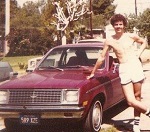|
The thing about electricity generation that makes it expensive are the spikes and dips in demand. A model of fast-recharging that copies gasoline refueling is not efficient, if you're expecting generation to keep up and manage this fickle and unpredictable energy usage. As with solar, the thing that's missing that fixes everything is a way to store energy at the utility level.
|
|
|
|

|
| # ? Jun 4, 2024 17:12 |
|
Subjunctive posted:Yeah, I donít think 3-phase 480V is going to power 8 concurrent fast chargers. Itís dollars, but itís dollars to change a lot of distribution infrastructure, and probably some zoning or other regulation here and there. You don't think 480V is enough to charge a car quickly? Or you don't think a standard power line's amperage at 480V is enough to charge 8 cars simultaneously? Because that latter problem is solvable by just adding more power lines.
|
|
|
|
Subjunctive posted:Because my apartment building doesnít have 500 chargers? Because I only have street parking? OK, that is certainly a segment of the market, a very large one but that still leaves a massive section of the market that can easily switch to an electric car. quote:Because Iím visiting someone who doesnít have a spare charger? Because I forgot to plug in last night? ďMost of the time you can use your carĒ isnít really a solved state. It also totally ignores the transportation aspect of ďtaxisĒ, for example. Right which is why all electric cars on the market come with a 120 adaptor? quote:Because I forgot to plug in last night? Do you run out of gas on the highway often? If this were an actual problem which it is not it would be trivial for car manufactures to have your car ping your phone or Alexa or whatever if your car isn't charging by X time. BMW already offers IFTT integration, I was a little surprised that they don't have a charging state trigger but I'm sure it would be NBD to add, I think I might suggest that they do. Fast charger certainly have a place in the market, if only to get consumers to accept cars with ranges more in line with their real world use, it doesn't make sense for a car that rarely if ever travels over 100 miles to carry around 250 miles of battery but there can easily be massive adoption of electric cars in the US without putting a bunch of fast chargers every other block.
|
|
|
|
TooMuchAbstraction posted:You don't think 480V is enough to charge a car quickly? Or you don't think a standard power line's amperage at 480V is enough to charge 8 cars simultaneously? Because that latter problem is solvable by just adding more power lines. I think that adding enough power line capacity for 8+ simultaneous fast charges isnít trivial or inexpensive. I have 240/80 at home, and itís not slow for home charging but itís pretty slow for ďwaiting in a gas stationĒ charging.
|
|
|
|
angryrobots posted:The thing about electricity generation that makes it expensive are the spikes and dips in demand. A model of fast-recharging that copies gasoline refueling is not efficient, if you're expecting generation to keep up and manage this fickle and unpredictable energy usage. I mean yes and no? Ideally almost all cars should be charging at night where there is already excess baseload power and even more being added as wind energy becomes more plentiful. I guess if we hit some critical mass we could hit a problem like we do in the day with air conditioning where there is a run on power after rush hour with everyone plugging in their electric cars but that's fixable with grid connected chargers like we do with air conditioning in some markets. Without a doubt not have electric cars solved, there will be infrastructure issues but at the same time there are still a fuckton of consumers that are almost perfect fits for electric cars that are not considering them which is a solvable problem while we work the rest of the stuff out and also drive the cost down with scale.
|
|
|
|
But you don't need a gas station. There can be a few chargers anywhere you would park in a day, There should be economic encouragement to charge off-peak, and there should be enough overhead in the existing infrastructure created by efficiencies created elsewhere to at least support the initial transition. Along side the growth of the electric car should come an expedited growth of local solar electricity that will take some of the load as well. I believe there will also be a lot of people moving from appliance car to ride sharing, cars as a service, and next generation public transport that will never be responsible for recharging a vehicle. The vehicle could return right to a local substation when not in use.
|
|
|
|
Subjunctive posted:I think that adding enough power line capacity for 8+ simultaneous fast charges isnít trivial or inexpensive. I have 240/80 at home, and itís not slow for home charging but itís pretty slow for ďwaiting in a gas stationĒ charging. OK but how often have you needed to use a fast charger? And how many of those times did you really need to fully charge or really just were short a few miles or were having a little range anxiety? What if more workplaces put in banks of slow chargers? How many of those times where you need a fast charge could have been solved by your car charging on 120 in the parking lot at work when it was just sitting there doing nothing? Fast chargers have their place, they might even be essential for mass adoption for just psychological reasons but it's not going to be anywhere close to a 1:1 gas pump trade off. Also people loving HATE going to gas stations already. Last time I rented a car I was given the option to prepay for gas so I didn't have to fill it up before I returned it. There are even companies today that will drive a mini tanker truck up to your car at work and fill your tank up, that is how much people hate getting gas, they will pay to have gas driven to their car so they don't have to deal with it. If it were practical to have a personal gas pump at home it would absolutely be a thing, like people would make housing decisions based on it like they do internet today. Three Olives fucked around with this message at 20:44 on Feb 2, 2018 |
|
|
|
I've never seen the "people hate getting gas" thing myself. I mean, yeah, it's something you have to do as part of owning a gas-powered car, but it's an extra ten minutes of your life every few hundred miles. That doesn't seem like that big a deal.
|
|
|
|
Subjunctive posted:Yeah, I donít think 3-phase 480V is going to power 8 concurrent fast chargers. It absolutely isn't. A Tesla supercharger with 8 stalls at full tilt delivers 4*145 = 580 kW DC. There's a substation at each supercharger site that steps down from whatever thousand volt is in the transmission line. I think most charging should and will be done in parking lots at domestic voltage. If you can't charge at your parking spot today, chances are you can tomorrow. Mountain cabins used to have kerosene lamps and wood stoves, now they have floor heating, jacuzzis and 55" TVs and it wasn't exactly an Apollo achievement. But what about payment, what about vandalism? We'll just figure it out, that's an engineering challenge on par with figuring out how to sell a bottle of soda from a vending machine. Of course, nation wide it's not without complex engineering challenges. But a good way to start is to get out of the gas station mindset. Interestingly, home charging undermines an important argument from the autonomy crowd. A car is parked most of its life, which is a bit of waste. "It should be driving itself around as a taxi!" they say. No I say, it should sit quietly and charge at single digit kW, and maybe feed back into the grid to help stabilize voltage and frequency.
|
|
|
|
TooMuchAbstraction posted:I've never seen the "people hate getting gas" thing myself. I mean, yeah, it's something you have to do as part of owning a gas-powered car, but it's an extra ten minutes of your life every few hundred miles. That doesn't seem like that big a deal. Really? It's just the loving worst, it has to be up there with doing dishes and cleaning the bathroom for activities that people do on a regular basis but hate doing with a burning passion. My partner likes mowing the lawn, he honest to god enjoys mowing the lawn, he says it is therapeutic, has anyone in the history of earth said they like getting gas?
|
|
|
|
TooMuchAbstraction posted:I've never seen the "people hate getting gas" thing myself. I mean, yeah, it's something you have to do as part of owning a gas-powered car, but it's an extra ten minutes of your life every few hundred miles. That doesn't seem like that big a deal. Sometimes it's really cold outside and the gas station is packed with people trying to reverse into each other and you just want to get home.
|
|
|
|
Three Olives posted:OK but how often have you needed to use a fast charger? About 30 times, if I had to guess. Mostly when traveling (including day trips for work), sometimes when doing a lot of driving in the cold. I have a 90kWh battery, though, so my needs are probably less than most at this point.
|
|
|
|
TooMuchAbstraction posted:I've never seen the "people hate getting gas" thing myself. I mean, yeah, it's something you have to do as part of owning a gas-powered car, but it's an extra ten minutes of your life every few hundred miles. That doesn't seem like that big a deal. I *loathe* getting gas. The smell just makes me gag and get a headache. Update after 1 week with my model 3 - I really really love it. The wipers could use some refinement but the AP is steadier than my AP1 model S and it is so much more perky. The turning radius is fantastic as well. On charging - I've been an EV owner since early 2011. It's literally never been an issue.
|
|
|
|
Subjunctive posted:About 30 times, if I had to guess. Mostly when traveling (including day trips for work), sometimes when doing a lot of driving in the cold. I have a 90kWh battery, though, so my needs are probably less than most at this point. The average person drives less than 30 miles per day so I'm going to say your needs are probably a LOT more than most.
|
|
|
|
Ola posted:Mountain cabins used to have kerosene lamps and wood stoves, now they have floor heating, jacuzzis and 55" TVs and it wasn't exactly an Apollo achievement. The U.S. spent more on rural electrification than on the Apollo Program.
|
|
|
|
Three Olives posted:The average person drives less than 30 miles per day so I'm going to say your needs are probably a LOT more than most. Thatís their commute, AIUI, and not all driving including weekend trips or kids to gymnastics class or groceries and so forth. But why did you want to know how many times Iíd used fast charging?
|
|
|
|
silicone thrills posted:The turning radius is fantastic as well. Good to know, the Model S definitely turns in aircraft carrier-ish circles. Platystemon posted:The U.S. spent more on rural electrification than on the Apollo Program. Apollo was just a symbolic victory, but electrifying rural areas and later giving them internet access meant a farmer could log on, read about politics, post opinio...you know what, nevermind.
|
|
|
|
Subjunctive posted:Thatís their commute, AIUI, and not all driving including weekend trips or kids to gymnastics class or groceries and so forth. Nope, that is per day: http://newsroom.aaa.com/2015/04/new-study-reveals-much-motorists-drive/ There are obviously outliers but the average person just doesn't drive that much. You mentioned the grocery store: US government posted:The distance to the nearest supermarket or supercenter for the average U.S. household was 2.14 miles and that average household primarily shopped at a store 3.79 miles from home. Have you ever been to a grocery store at 6PM? People stop at the grocery store before or after work, or they make a trip on the weekend when they aren't working. And I bet a lot of these families with kids with gymnastic class have two cars and one could easily be replaced with an electric car. Obviously electric cars are not a fit for all consumers, obviously electric cars come at a premium, even a Leaf with a lovely battery is going to cost more than an equivalent ICE car, my point is that there is a massive part of the market that isn't considering electric cars for irrational reasons. A friend of mine works 6 miles from home, less than a mile from the grocery store, I doubt he ever drives more than 15 miles from his house and he thinks I am nuts for buying an electric car because "What if you want to drive to Austin?", he never takes road trips, nor do I and if I did my partner has an ICE car, he should be the prime market for an electric car but he won't even consider it because it won't work for road trips he doesn't take. This is not a fast charger problem, it's a problem with the rationality of consumers.
|
|
|
|
Three Olives posted:Really? It's just the loving worst, it has to be up there with doing dishes and cleaning the bathroom for activities that people do on a regular basis but hate doing with a burning passion. My partner likes mowing the lawn, he honest to god enjoys mowing the lawn, he says it is therapeutic, has anyone in the history of earth said they like getting gas? Getting gas in PA sucked rear end, but at least in GA itís an excuse for a beer run. Kidding aside, I donít miss the ďpoo poo, Iím running late to work and forgot about having less than a quarter in the tankĒ moments I had with the bike. Plug it in and forget about it until tomorrow has served me well. Looking forward to doing that with a car sooner than later.
|
|
|
|
Three Olives posted:I mean yes and no? Ideally almost all cars should be charging at night where there is already excess baseload power and even more being added as wind energy becomes more plentiful. I guess if we hit some critical mass we could hit a problem like we do in the day with air conditioning where there is a run on power after rush hour with everyone plugging in their electric cars but that's fixable with grid connected chargers like we do with air conditioning in some markets. I'm not arguing any of this. I was responding to the current discussion, that of needing massive infrastructure upgrades to install fast chargers all over the place. This IMO is a bad idea, until we have the energy buffer of some kind of storage between generation and supply point. Off peak nightly slow charging for a commuter EV is ideal. Any upgrades needed to distribution systems to handle this, would in many situations pay for themselves.
|
|
|
|
angryrobots posted:I was responding to the current discussion, that of needing massive infrastructure upgrades to install fast chargers all over the place. This IMO is a bad idea, until we have the energy buffer of some kind of storage between generation and supply point. I think it is a problem that kind of solves itself given the cost of fast charging, as far as I can tell between time and financial cost fast charging is really not practical for regular charging when charging at home is an option. It a nice safety blanket but I think in general consumers will be more than happy to charge at home with the knowledge that they can fast charge if they have to.
|
|
|
|
angryrobots posted:I was responding to the current discussion, that of needing massive infrastructure upgrades to install fast chargers all over the place. This IMO is a bad idea, until we have the energy buffer of some kind of storage between generation and supply point. We basicly have this already. Subjunctive has a 90 kWh battery in their car, the charging station would require $38500 worth of Powerwalls to cover that and it would probably be cheaper with bigger units. We aren't really ready to use batteries for grid-scale storage, but for a charging station with huge fluctuations in consumption it might not be unreasonable to invest in few hundred thousand dollars of battery storage.
|
|
|
|
MrYenko posted:It's not, but installing the capacity is only a question of dollars Oh is that all? The nearest charging station to my house is over 26 miles away, and the closest one to my work is about 8. EVs are a great urban product, no doubt. But they have a long loving way to go before the universal acclaim some people in this thread keep heaping is actually realistic once you're out of sight of a 1M+ person city.
|
|
|
|
Godholio posted:Oh is that all? Two questions: 1. Where do you park your car? 2. How far to work?
|
|
|
|
angryrobots posted:As with solar, the thing that's missing that fixes everything is a way to store energy at the utility level.
|
|
|
|
I don't like having gas. I honestly have never thought about getting gas until this conversation.
|
|
|
|
bawfuls posted:It's super cool that funding for R&D on this is so weak. Is there a particular technology youíd like to see more work on? At this point, the the lead horse is looking like batteries, developments in which are massively funded by mobile electronics. Grid storage grants wonít appreciably hasten this.
|
|
|
|
Platystemon posted:Is there a particular technology youíd like to see more work on? Disclaimer: I am a MechE who works for a thermal energy storage technology start up bawfuls fucked around with this message at 01:28 on Feb 3, 2018 |
|
|
|
bawfuls posted:Batteries don't scale particularly well to grid-level storage. For that we should be more seriously exploring thermal storage technologies. But it is far from settled science and really we should be going after a wide array of potential solutions at this point. Would love to hear your analysis of the state of the art!
|
|
|
|
Godholio posted:Oh is that all? The nearest public charger from my house is less than 2 miles, the nearest one from my work is a few blocks. Do you think people moved into major cities because we like traffic and paying more for real estate? I'm not sure what point you are trying to make and I don't think you are either, you seem to basically be criticizing the idea of major cities themselves, major cities exist because they provide economies of scale in many ways including infastructure, of course electric cars are going to be practical in them first just like everything from sewer systems to fiber internet. I don't think anyone is arguing that electric cars are practical or affordable for everyone, even people that live in major cities, I do think they are being largely ignored by a lot of people, like millions and millions that they are practical and affordable for or could be with relatively minor infrastructure investment.
|
|
|
|
Ola posted:Two questions: 1. In a dirt/rock (not gravel) lot 50 yards from the building (security, yay). 2. About 35 miles. Three Olives posted:The nearest public charger from my house is less than 2 miles, the nearest one from my work is a few blocks. Do you think people moved into major cities because we like traffic and paying more for real estate? My point is that you repeatedly post as if you have the most obvious answers in the world, and it gets irritating. It's kind of your shtick, I get it, but I'm still going to reply because where I'm currently living/working is basically the polar opposite of downtown Houston when it comes to this stuff. So I'm going to keep pointing out that even though quite a few people obviously live in cities where your experience applies, it's far from as universal as it's repeatedly presented. And the kind of "minor infrastructure investment" you're thinking probably doesn't scale up quite as easily as suggested. Godholio fucked around with this message at 01:50 on Feb 3, 2018 |
|
|
|
Godholio posted:1. In a dirt/rock (not gravel) lot 50 yards from the building (security, yay). A regular parking lot can have power outlets just like it can have streetlights. Example pic here If you could get 2000W charging, same as a living room electric heater, you'd charge your round trip commute in 11 hours. That obviously requires the lot owners or local government being interesting in developing this. That might not be the case.
|
|
|
|
Godholio posted:My point is that you repeatedly post as if you have the most obvious answers in the world, and it gets irritating. It's kind of your shtick, I get it, but I'm still going to reply because where I'm currently living/working is basically the polar opposite of downtown Houston when it comes to this stuff. So I'm going to keep pointing out that even though quite a few people obviously live in cities where your experience applies, it's far from as universal as it's repeatedly presented. And the kind of "minor infrastructure investment" you're thinking probably doesn't scale up quite as easily as suggested. OK, but I'm talking about electric cars which have real technical challenges that largely limit them to major cities or travel between major cities for at least the foreseeable future. I thought the context of my comment was obvious and it seems obvious to you. It's like I started posting in a horse ownership threat in Pet Island about how impractical horses are for me. Of course there are always edge cases, just a few miles from my house there is a house with horses because it was established probably 100 years ago back when this was rural property before it became the suburbs and now urban property about 5 miles from the CBD. We have an ICE car which makes what is frankly a range limited car like an i3 practical for us as basically a no compromise car, if we were going all electric we would probably be looking at a Model 3, this is a solution that would probably work for a hundreds of thousands of households in my city and yet some days I go days without seeing another electric car. I thought it was clear that those were the kind of issues I was speaking to which are relatively easily solvable in my mind by doing simple and inexpensive things like putting more chargers at shopping centers, grocery stores and the occasional fast charger at the local Walgreens or gas station like some already have. Three Olives fucked around with this message at 03:02 on Feb 3, 2018 |
|
|
|
Walgreens is doing fast chargers? Thatís fantastic. Are they free with purchase?
|
|
|
|
Subjunctive posted:Walgreens is doing fast chargers? Thatís fantastic. Are they free with purchase? No, a private charging company is I assume leasing two parking spaces from them to put a fast charger and it is absurdly expensive. But it's there, right near the most populous area of the city if you need to charge up before you head home.
|
|
|
|
Just to chime in on the gas station thing. My construction company has 6 vehicles on the road, with half of them being diesel. Getting gas blows and is a huge waste of time. I can not loving wait to be able to pull a van out of the garage with a full battery every morning.
|
|
|
|
Subjunctive posted:Would love to hear your analysis of the state of the art! Batteries are not good for reasons of scaling. In general, if you want to make a battery to store 1,000,000x as much energy as the one in your phone, it's going to take 1,000,000x more lithium. You're just repeating the same architecture over and over, much like with photovoltaics (a PV farm in the desert is essentially just a LOT more versions of the same panels on the roof of your house). Scale matters here because we are talking about the need to store gigawatt-hours or terawatt-hours of energy. As I type this, California is using roughly 27.8 GWhr of power through the electrical grid. So just in the state of CA, if we want robust storage to allow for major time-shifting of production with wind and solar generation, we'd need on the order of 250 GWhr of capacity at current demand levels. Tesla's big new factory in NV is supposed to produce 50 GWhr of battery packs per year by 2020. And that's a massive scale up in battery production compared to where the world is at right now. Thermal storage, i.e. storing energy as heat in some insulated container, scales better for a few reasons. The basic premise is you have some dense storage medium like molten salt, a pile of rocks, a block of graphite, whatever that you heat up, maintain at temperature for awhile, and then cool down to get energy back out. You put this media inside a big container surrounded by insulation so it stays hot. Pretend it's a cube for simplicity's sake. As the container gets bigger, the energy storage capacity increases with the volume of the storage media, which scales as s^3 where s is the length of one side. Twice as much graphite at 1000C stores twice as much energy. Meanwhile, the surface area of the storage media scales with s^2. This means that your heat losses go DOWN (on a percentage basis) as you make the system larger and larger, because volume is increasing faster than surface area. Furthermore, the thickness of insulation surrounding your storage media is constant as you scale up, because if you need say 3ft of insulation to get from your storage temp to ambient at acceptable heat flux, it doesn't matter if the side of the container is 50ft long or 500ft long; the insulation on that side is 3ft thick everywhere. So the amount of insulation you need as you make the system bigger also increases with s^2. This means material costs do not scale linearly with increasing storage capacity the way they do with batteries. The other notable technology in this space is pumped hydro storage, which is pretty much just pumping water up a hill and letting it run back down. That's a great system honestly, it's very simple, leverages existing hydroelectric tech, and is of course quite clean. The main issue is it's kind of limited by location. It's just not very feasible to build two massive reservoirs near every major city that are separated by several hundred feet of elevation. Like hydroelectric power itself, there are only a few locations where it makes sense. I have heard some proposals to convert old underground coal mines into pumped hydro storage, but again there's only so many places you can do this. Flywheels are kind of interesting but really only make sense for very small duration transient cases. They aren't a solution to the core issue of wind blowing more at night and sun shining only during the day. That may be too long for this thread but w/e. Happy to answer more questions if people have them, but I probably should post in the energy thread over in D&D. bawfuls fucked around with this message at 04:13 on Feb 3, 2018 |
|
|
|
That was really interesting, thank you!
|
|
|
|
How is the graphite heated? Resistance heating elements? Or is this only for solar thermal? How do you get the energy out? Insulation required scales with the cube root of capacity, but the engine requirement scales linearly if you want to extract it on the same time scale. Still, there are economies of scale to large engines.
|
|
|
|

|
| # ? Jun 4, 2024 17:12 |
|
I'll just drop this here... https://www.youtube.com/watch?v=QCIo8e12sBM
|
|
|























